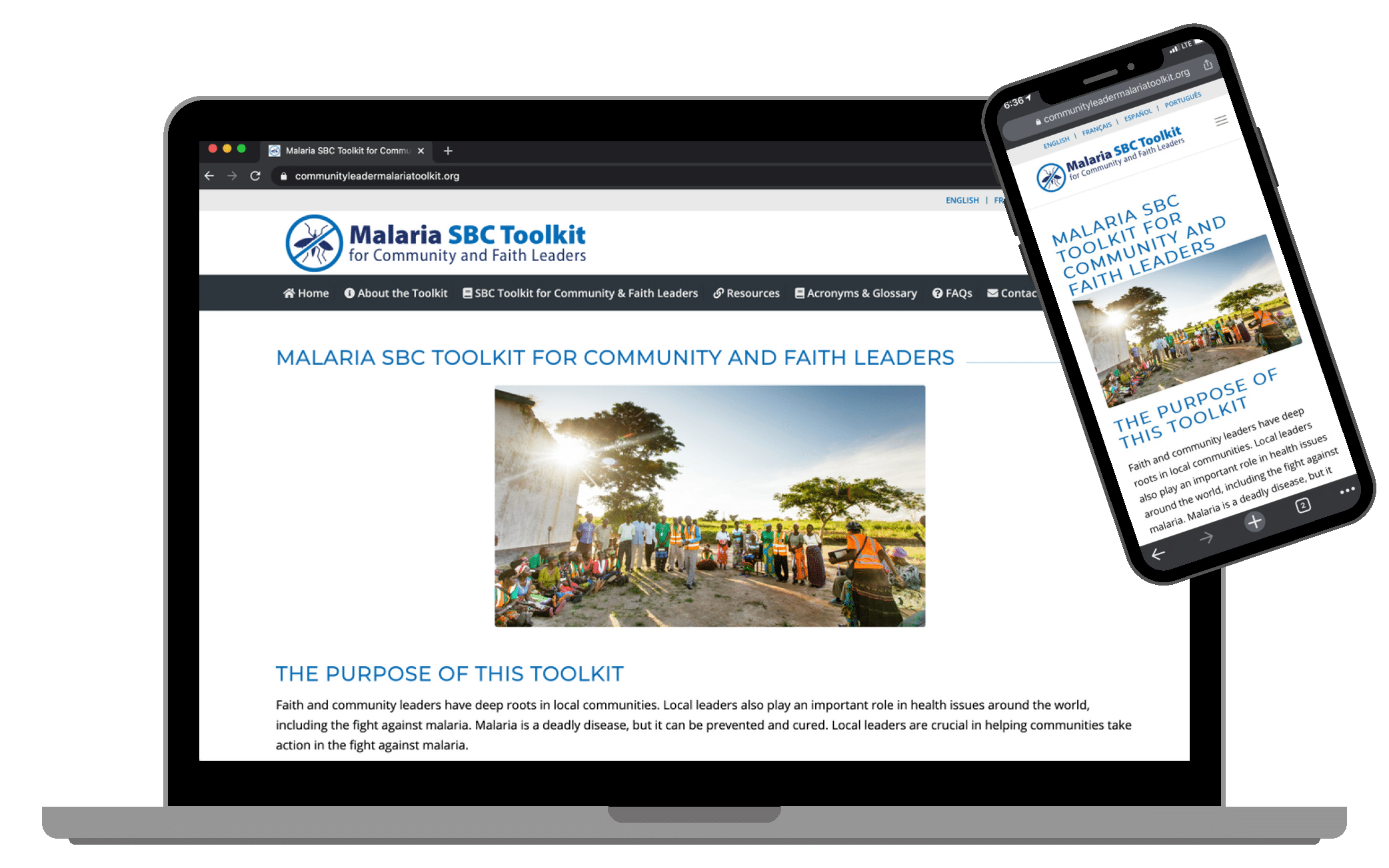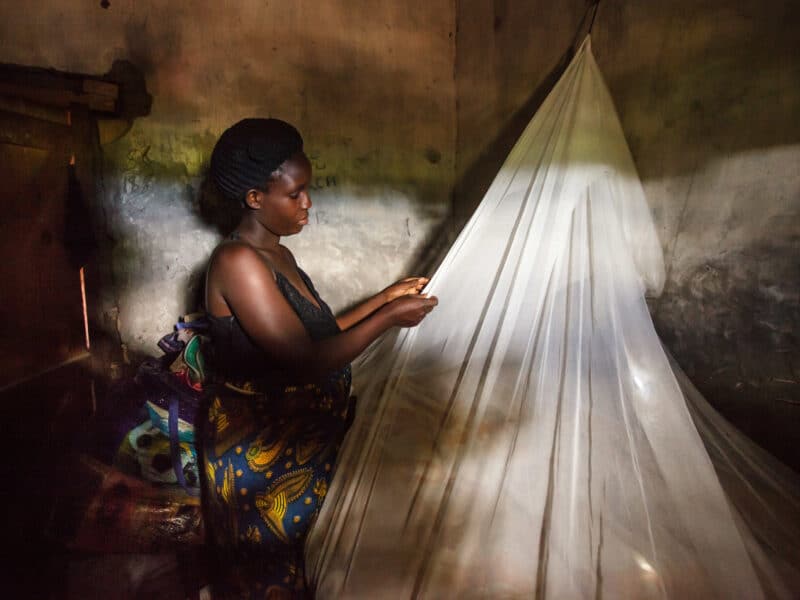Alikanjero Kanyemba, a local faith leader in Kasungu, Malawi, preaches about what he calls the “perennial” monster: Malaria.
He works with faith leaders from five Christian and Muslim denominations to include messages on malaria prevention and care in their sermons and other interactions with their communities, including funeral ceremonies, market days and group meetings. He leads a weekly malaria education session for new mothers at his local hospital, sharing the importance of preventing malaria and seeking care immediately for children with fever, working with more than 360 new mothers since July 2021.
“Communities suffer a lot from malaria,” he says.
Kanyemba learned about the role that he and other influencers could play in reducing malaria when he participated in a training held by the Malawi Interfaith AIDS Association and National Malaria Control Program. To create the training, the National Malaria Control Program used the Malaria Social and Behavior Change Toolkit for Community and Faith Leaders, an online resource created by the U.S. President’s Malaria Initiative (PMI) and the Johns Hopkins Center for Communication Programs-led Breakthrough ACTION project.
“In our communities, the number one source of advice is from faith leaders they know and trust,” Kanyemba says. “Faith leaders are very important in assisting communities to take action against malaria through social and behavior change activities. Faith leaders have opportunities to share important information about malaria.”
Malawi’s entire population of about 18.6 million people is at risk of malaria, according to PMI. There are an estimated 6.2 million cases each year in the country and they account for 30 percent of all outpatient doctor visits.
Using the toolkit, the Malawi Interfaith AIDS Association and National Malaria Control Program trained 18 faith and community leaders from across the country to effectively promote key malaria prevention behaviors during sermons and community gatherings. Key messages include statements like “every household member should sleep under an insecticide-treated net every night,” “properly care for and maintain your insecticide-treated net,” and “know the symptoms of malaria and seek care within 24 hours at a health facility or with a community health worker.”
The Malaria Social and Behavior Change Toolkit is a free online resource for community and faith leaders. It contains resources to learn about malaria, tools to communicate effectively and create lasting behavior change, a list of key actions to promote the fight against malaria at the local level, steps for integrating malaria into current work, and strategies for advocating for malaria control and prevention. The toolkit provides all the resources and tools needed for faith leaders to help their local community change their everyday actions to prevent malaria and to treat it quickly and safely if they become sick.
“Faith and community leaders have deep roots in local communities,” reads the toolkit. “Local leaders also play an important role in health issues around the world, including the fight against malaria. Malaria is a deadly disease, but it can be prevented and cured. Local leaders are crucial in helping communities … in the fight against malaria.”
As chairperson of the District Interfaith AIDS Association, Kanyemba is also spreading his knowledge about malaria social and behavior change by training 86 local faith leaders and 18 local stakeholders from various community groups. Together, Kanyemba and the other 17 leaders who participated in the original training have shared their knowledge with more than 600 faith leaders across the country.
Having witnessed the impact made possible by equipping faith leaders with community engagement and behavior change skills, Kanyemba is optimistic about the future.
“Creating a community-based movement to increase awareness and ownership of malaria interventions protects the most vulnerable families and communities from malaria,” he says.
A version of this post was first published on the PMI website.





